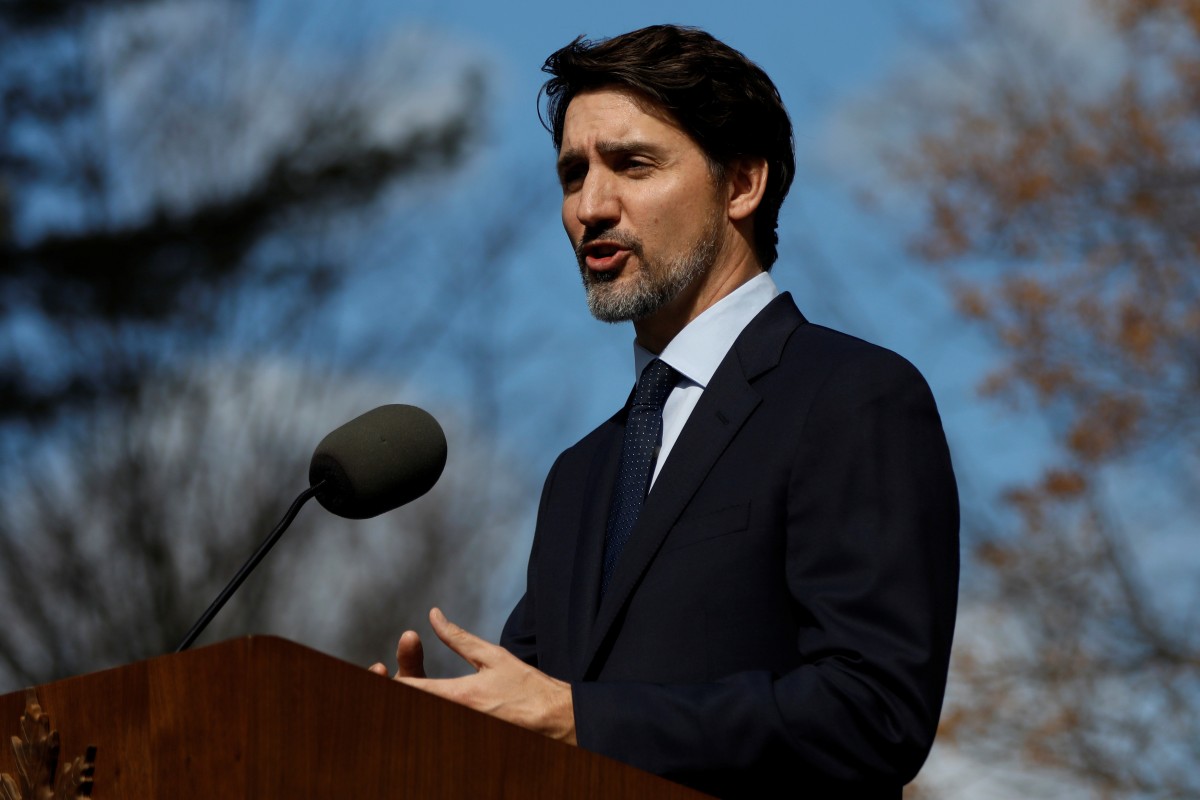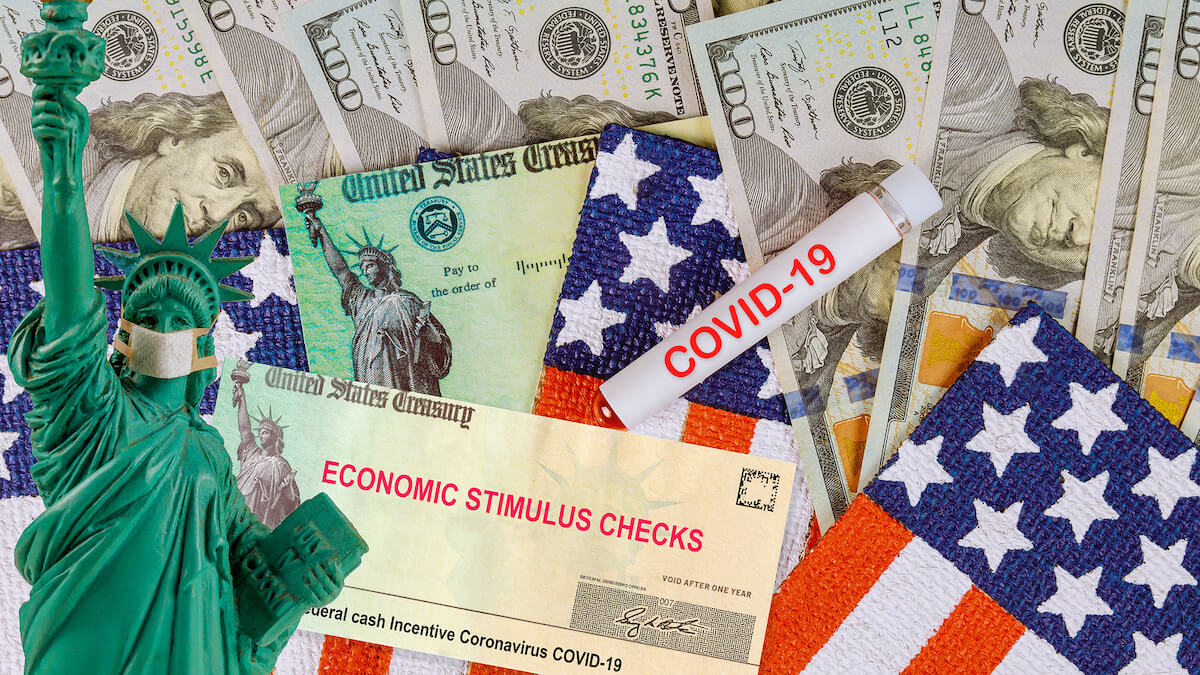As countries worldwide enter what feels like the umpteenth week of quarantine or lockdown, the coronavirus has now burned an indelible hole through people’s respiratory systems and wallets. While employers dig through their ever-depleting financial reserves to pay disgruntled and dwindling staff, governments across the globe have announced emergency stimulus packages to offset these unprecedented capital crunches for both businesses and employees. This has created a renewed impetus for the universal basic income (UBI) movement, with many left scratching their heads as to why it took a pandemic for governments to release life-changing funds that they had all along.
Ideas that were considered utopian, unfeasible, and unsustainable just a few months ago have now permeated mainstream discourse across the political spectrum. Fiscally and socially conservative commentators have for years bandied unfounded claims that a UBI system would remove the incentive to work and that it is economically unfeasible.
However, such mindsets are rooted in a misguided understanding of the modern economy. UBI schemes merely aim to facilitate a basic standard of living for all citizens. With a constantly rising cost of living, monthly governmental payments would only assist in covering basic costs such as housing, food, and fuel. This condition holds true across both developed and developing nations.
For example, the “economically disadvantaged” city of Stockton, California has been trialing a UBI for roughly a year, with 125 residents receiving a monthly payment of $500. Data indicates that 40% of this money is spent on food. One single mother, Lorrine Paradela, reported that, as a result of the payment, she was able to quit one of her two jobs and purchase food for not just her kids, but herself as well.
Similarly, Alaska has had the Permanent Fund Dividend (PFD) since 1976, which is an interpretation of the UBI, and has reported a significant decrease in property and substance-related crimes, offenses which are generally associated with the more economically marginalized. It has also resulted in reduced poverty and improved child health.
In Kenya, the non-governmental organization GiveDirectly found that, rather than disincentivizing work, monthly payments actually fuelled employment. The UBI scheme allowed for upward economic mobility and freedom as citizens were no longer forced into jobs they didn’t want to do simply to make ends meet. Instead, as food security became less of a concern for recipients who could now put a roof over their heads, they were left with sufficient disposable income to start a business or invest in livestock.
In fact, UBIs have been trialed and used in various regions of the world to improve food security and health, reduce poverty and crime, increase access to education, facilitate upward social and economic mobility, and improve the minimum standard of living.
As a result of what will surely result in a protracted economic crisis, the coronavirus has forced the more financially fortunate–who previously viewed UBIs as undeserved handouts to the lazy, unmotivated, and dispensable poor–to now consider those same payments as groundbreaking, revolutionary, and necessary.
Bailouts for big businesses are already commonplace and are not traditionally viewed with the same skepticism or doled out with the same reluctance. The economic troubles of the rich have long been prioritized over those of the poor and their financial misadventures are curiously not seen as the byproduct of lethargy or a lack of intelligence, unlike welfare recipients. While small business owners do not receive the same level of mollycoddling as their much larger counterparts, they still receive support such as loans and subsidies without the scorn that is bestowed upon the poor.
Amid the ongoing coronavirus crisis, several countries are rolling out wage subsidies and business loans as part of their COVID-19 stimulus packages: the UK announced a £330 billion package, Singapore’s three stimulus packages total $41.7 billion, Japan launched a stimulus package of nearly $1 trillion, Canada introduced a 75% wage subsidy program, France offered $335 billion in loans to businesses, Germany pledged $610 billion to help its companies, Switzerland put forth $10.5 billion to aid Swiss firms, South Korea unveiled a $9.8 billion package for local businesses, and Australia passed a $130 billion wage subsidy program, to name but a few countries. However, while these packages and programs are welcome initiatives that will allow millions to stay gainfully employed, government initiatives to aid the continued operation of businesses is not a coronavirus-induced phenomenon. Governments have always flocked to lend a helping hand to businesses during trying times.
What is more unprecedented, however, is how several governments are putting their weight behind strategies and proposals that offer individual citizens cash payouts instead of subsidizing the payroll of embattled businesses. Canada is offering up to $2,000 a month for up to four months to people who have lost their jobs during the ongoing pandemic, a policy that has been replicated in Japan. Singapore announced a cash payout of $417 for each and every adult citizen. The US government has set aside $250 billion to send direct checks for up to $1,200 per individual, with $2,400 for married couples and an additional $500 for each child.
Spain, too, announced that it will implement a UBI scheme “as soon as possible”. Meanwhile, UK MP Apsana Begum joined hands with 150 other MPs across different parties to call for Chancellor of the Exchequer Rishi Sunak to implement a UBI, arguing that “direct payments” are the only way to ensure “real financial security”. Juan Pablo Bohoslavsky, the UN Independent Expert on the effects of foreign debt and human rights, also urged world governments to introduce an ‘emergency’ UBI.
Thus, UBI is gaining significant popularity and traction across the political spectrum and across national borders. But why now? The International Labour Organization (ILO) warns that upwards of 25 million people across the globe face losing their jobs due to the economic damage wrought by the coronavirus. However, given that other research has found that between 37 and 47 million jobs could be lost in the US alone and that a large portion of the world’s workforce is employed in the informal sector, the ILO’s projection is conservative, to say the least.
The plight of those who live at the margins of society is a long-running battle that dates back much farther than the present coronavirus crisis. However, the coronavirus has brought about an unforeseen circumstance in which the livelihoods of individuals in the lower-middle class and above are also under siege. Individuals in the upper echelons of the social and economic hierarchy, who control the means of production, rely on those below them to purchase goods and services that fund their lavish lifestyles. As the current crisis reduces the purchasing power of consumers, those lifestyles are now threatened. In fact, the Bloomberg Billionaires Index shows that the coronavirus-induced crisis has resulted in a decrease in the wealth of 85% of the world’s 500. richest individuals.
Providing a basic standard of living has arguably not been a priority for world governments when the only people suffering were those at the bottom of the manufactured and self-perpetuating proverbial food chain. However, given that the ongoing crisis has threatened the livelihoods of both the rich and the poor, provisions that were previously considered superfluous and unrealistic are now being implemented without hesitation.
Simultaneously, as has long been suspected, this situation sheds light on how UBI schemes have been financially feasible all along despite governments’ protestations that they weren’t. For example, giving $1,000 a month to 300 million Americans amounts to roughly $3.6 trillion per year. Given that the US government’s budget in 2019 was $4.4 trillion, and sections of the American population are wealthy enough to forgo such a payment, providing a UBI to those who really need it–rather than the entire population of 330 million–would be easily achievable. Moreover, any shortfalls could easily be made up by reallocating money from elsewhere. For example, the US alone accounts for roughly 40% of the world’s military expenditures and has a military budget that is larger than the next seven biggest spenders combined. In addition, the country’s budget of $4.4 trillion only forms 21% of its GDP, while European countries typically have budgets that are 40-50% of their GDP, indicating that the US can afford a greater deal of financial flexibility to provide a UBI.
Likewise, providing each of the 54 million people in the UK who are over the age of 16 an annual amount of £10,000 would cost £540 billion. Like in the US, this too amounts to 20% of the UK’s GDP. Given that countries like Japan are spending 20% of their GDP on coronavirus stimulus packages, which are temporary measures, it is not beyond the realm of possibility to suggest that a country can afford to spend a similar fraction of its GDP on long-term, permanent UBI programs. Spain, for example, plans to make basic income a “structural instrument” that endures beyond the current crisis–“forever”.
Moreover, it is telling that even developing countries like Rwanda and El Salvador can afford to provide some form of temporary economic protection during this pandemic. Rwandan President Paul Kagame announced that the government will deliver free food to at least 20,000 households across the nation, and is also providing water and electricity for free. Although this isn’t a UBI per se, given that the recipients of UBIs report spending the received amount on those same needs, this provision has essentially taken the place of a UBI. Meanwhile, El Salvador has “suspended electric, internet, and phone bills for three months, frozen monthly rental payments, mortgages, and loan payments for three months, and expanded unemployment protections”. Thus, it would likely be easily achievable for developed countries like the US and the UK to provide long-lasting economic relief even beyond the current crisis. Germany, for example, implemented a basic income of roughly $1220 per month in December 2019, well before the height of the current crisis.
The coronavirus has left a cloud of suspicion over world governments that are now rushing to provide services and programs that they have for decades argued are fiscally irresponsible. A closer look at the supposed budgetary constraints of these governments reveals that a basic standard of living is attainable and has been withheld, and suggests that this was done in order to maintain the absurdly unequal status quo. Given that individuals at the periphery of power and wealth have long campaigned for a standardized baseline standard of living, the reinvigorated impetus for a UBI is likely fuelled by the fact that the current crisis has impacted the livelihoods of the rich. As nations begin to contain the spread of the novel coronavirus, citizens worldwide must use this crisis to lead a renewed demand for a permanent UBI and force governments to provide what they can, not what they want to.
Universal Basic Income: Why Has It Been Withheld Until Now?
Ideas that were considered utopian a few months ago are now seen as necessary.
April 11, 2020

IMAGE SOURCE: PATH2USABailouts for big businesses are already commonplace and are not traditionally viewed with the same skepticism or doled out with the same reluctance.
